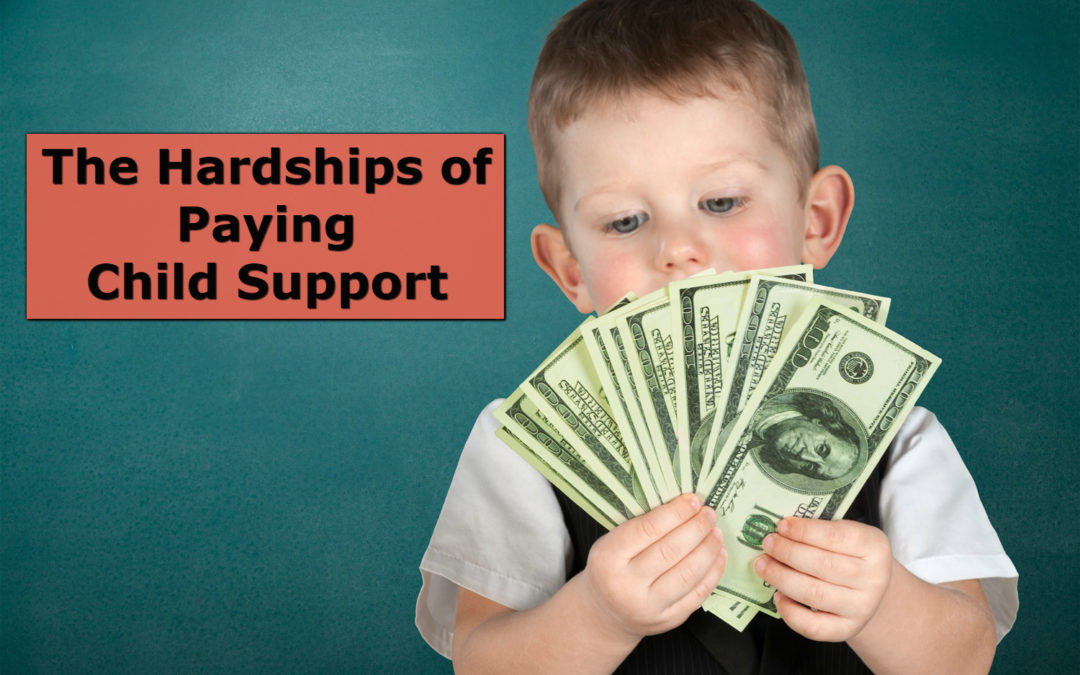Child support can be a very emotional and confusing subject. There are parents who should be receiving it on behalf of their kids but unfortunately do not. On the other hand, there are some parents who should be paying child support but often do not. When child support levels are inadequate, it is often kids and the custodial parents who suffer most. However, there is a different aspect to the issue that most people neglect. Child support payments often have a silent victim who is seen as the culprit. While the child support is meant to take care of the child’s needs, the parent who has to pay may find it difficult to keep up with payment for a variety of reasons. But first, what does child support entail?
What Is Child Support?
According to U.S. family law, child support or maintenance is a continual and intermittent payment made by a spouse for the financial benefit of their child after the end of a marriage or partnership. These payments are made either directly or indirectly to the guardian for the support and care of the child.
Currently, the child support program serves one-quarter of all U.S. kids and about half of all children in poor U.S. families. Studies do indeed show that child support substantially reduces child poverty and even promotes the parents responsibility. But the reality of the matter is, not all parents can afford to make the payments as ordered by a court of law. As it stands today, majority of the parents ordered to pay child support choose not to do so for reasons that are not in the least bit legally recognized. Choosing not to pay child support or falling behind on the payments can have serious repercussions for the obligor. While it may not be the parent’s fault or wish to miss their child support payments, the courts have become more strict in enforcing child support orders and collecting arrears in full.
Consequences for Not Paying Child Support
Whether intentional or otherwise, skipping out on your child support payments has implications that are legally enforceable by a number of different agencies. Some of these measures include but are not limited to:
- Garnishment of wages for purposes of making payments, arrears, and accrued interests
- Garnishment of other payments such as insurance and tax refunds
- Suspension of passport and driver’s license
- Seizure of bank accounts and assets
- Reporting matter to credit bureaus for purposes of credit rating impact
In more severe cases, the defaulting parent can be liable to spend time in jail. But not to worry, our lawyer can help ease your burden and bring the child support amount to something more affordable.
How Our Child Support Attorney Will Help Ease Hardships of Child Support
Instead of having to pay incredibly high arrearages or spend hard time in jail for lacking the ability to pay child support, we can help you prove undue hardship. Even the court understands that a parent may be unable to afford the child support amounts tabled in the support act. As such, payers wishing to get the child support amount reduced must prove that paying the full amount will cause undue hardship to the parent or the child.
The term undue hardship refers to a tough threshold to meet. In this case, it means that if the parent applying for undue hardship were to make the full payment, he or she would face severe financial difficulties on other fronts. Tests and evidence of undue hardship include a lowered standard of living, giving up one’s vehicle, shifting to a restricted diet or taking up more jobs than one can handle. Merely claiming hardship to a judge is insufficient to justify a lower child support order. It is up to you to present your unique set of circumstances that amount to undue hardship. The circumstances that may cause a child or spouse to suffer undue hardship include:
Debt
If the spouse or ex has an unusually high level of debt that was incurred by supporting the other partner and their children prior to the separation, then he or she may be unable to make the payments in full. Since you may be still paying the debt and trying to earn a living at the same time, the tabled child support sum may cause undue hardship.
Access to Child
If the parent has unusually high expenses in relation to exercising access to the child i.e. pricey plane tickets, then asking for the full child support is indeed a form of undue hardship. The visitation and access expenses should be deducted from the support.
Legal Duties
If the spouse has any legal duties to support another child other than that of the marriage, then this is also a circumstance for proving undue hardship.
Illness and Disability
The spouse may be facing illness or experience a disability that will make it difficult to work anymore. As such, meeting the child support payments will be almost impossible due to the hardship involved. If the spouse is also under a legal duty to support persons who are unable to obtain the necessities of life due to disability or illness, then this is grounds for claiming undue hardship on child support.
Loss of Income
If you have been keeping up with child support payments and your employment gets terminated, make sure you claim undue hardship in court so as to notify the judge of why you are unable to meet payments. If you fail to do so and are brought forward by the custodial parent, then the court will ask you to pay the arrears in full even after a year of unemployment.
Make sure you talk to a family attorney during and after child support determination proceedings to get the most suitable agreement for everyone involved.

